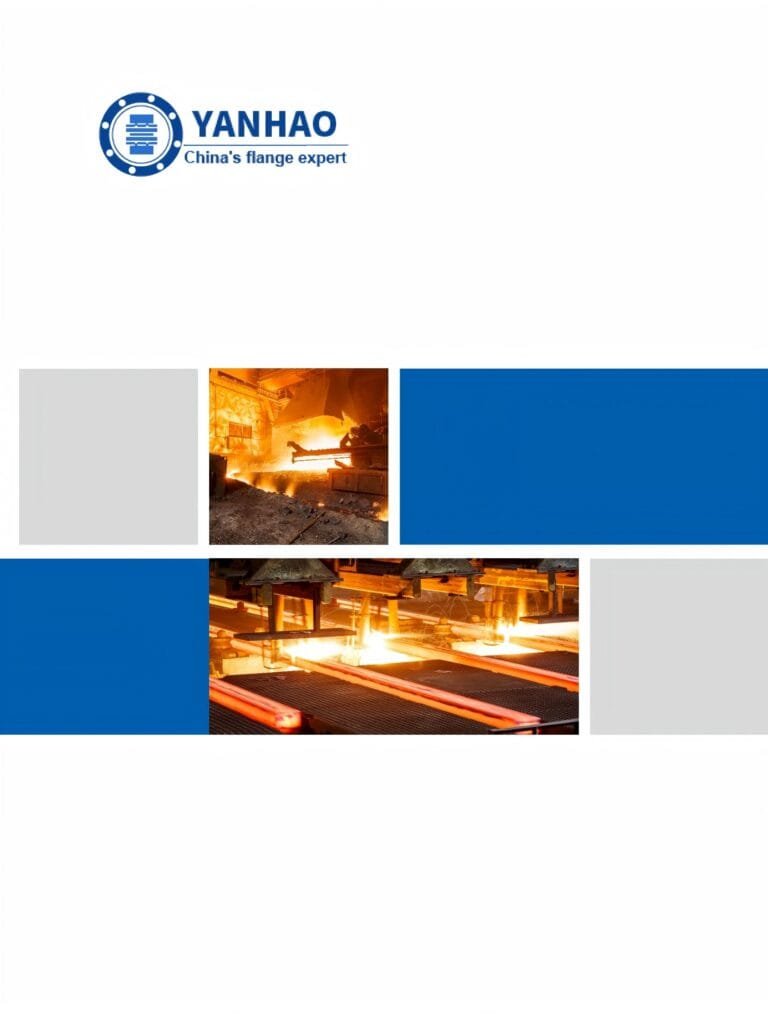How to prevent corrosion in carbon steel flanges?
Preventing corrosion in carbon steel flanges involves a combination of protective measures and proper maintenance practices. Here are some steps to help prevent corrosion in carbon steel flanges:
- Proper Material Selection:
- Consider using carbon steel flanges with added corrosion-resistant alloying elements, such as chromium or molybdenum, for better corrosion resistance.
- Select the appropriate flange material based on the specific application, considering factors like temperature, pressure, and the type of fluid being transported.
2. Protective Coatings:
- Apply corrosion-resistant coatings to the flanges, such as epoxy, zinc, or polyethylene. Ensure that the coatings are applied according to manufacturer guidelines.
- Regularly inspect the coatings for signs of damage or deterioration and reapply as needed.
3. Cathodic Protection:
- Implement cathodic protection systems, including:
- Sacrificial Anodes: These are metal components (usually zinc or aluminum) that corrode instead of the carbon steel flanges. Replace anodes as they degrade.
- Impressed Current Systems: Use electrical systems to provide a continuous flow of protective current to the flanges.
4. Gasket Selection:
- Choose gaskets made of materials compatible with the process fluid and operating conditions. Consider non-corroding gasket materials, such as PTFE or EPDM, when applicable.
5. Regular Inspection:
- Conduct routine inspections of the flanges to identify early signs of corrosion. Pay attention to any pitting, rust, or surface irregularities.
- Use non-destructive testing methods like ultrasonic or radiographic inspection to assess the integrity of the flanges.
6. Maintenance and Cleaning:
- Keep the flange surfaces clean and free of contaminants, rust, and debris. Regularly clean and inspect the flanges to remove potential corrosion sources.
- Ensure that flange drains are clear and allow for the proper drainage of any accumulated moisture.
7. Proper Bolt Torque:
- Follow manufacturer specifications for bolt torque during assembly. Proper bolt tension ensures a tight seal, reducing the risk of corrosion.
8. Environmental Control:
- Maintain the surrounding environment to minimize moisture and exposure to corrosive agents. Adequate ventilation and drainage are essential.
9. Protective Wraps or Sleeves:
- Use protective wraps or sleeves made from materials like polyethylene or PVC to provide a physical barrier to shield the flanges from environmental elements.
10. Corrosion Inhibitors:
- Add corrosion inhibitors to the process fluid to reduce the corrosion rate of the carbon steel. Consult with a corrosion specialist to select the appropriate inhibitor for your application.
11. Insulation:
- Insulate flanges to prevent temperature fluctuations, which can cause condensation. Proper insulation can help maintain a dry environment.
12. Regular Maintenance:
- Establish a comprehensive maintenance schedule that includes inspection, cleaning, coating maintenance, and bolt torque checks.
13. Emergency Shutdown Procedures:
- Develop and implement clear procedures for emergency shutdown in case of a significant leak or corrosion issue. Quick isolation can prevent further damage.
To create an effective corrosion prevention plan, it’s crucial to understand the specific environmental and operational conditions that the flanges will be exposed to. Consulting with corrosion experts and engineers who specialize in materials and corrosion control can provide valuable insights and guidance for your particular application.
Author: Lewis Liu
Hello, my name is Lewis Liu, and I’m a professional sales engineer with over a decade of expertise in the flange fittings sector.
I am quite informed about flange selection, installation, and maintenance. I am passionate about providing customers with the greatest solutions for keeping their pipeline systems running smoothly, safely, and dependably.
If you have any queries or concerns concerning flange fittings for your pipelines, whether they are about selection, material choice, specification requirements, or anything else, please contact me at any time. I am dedicated to providing expert advice and assistance to help you make educated decisions and reach your objectives.

